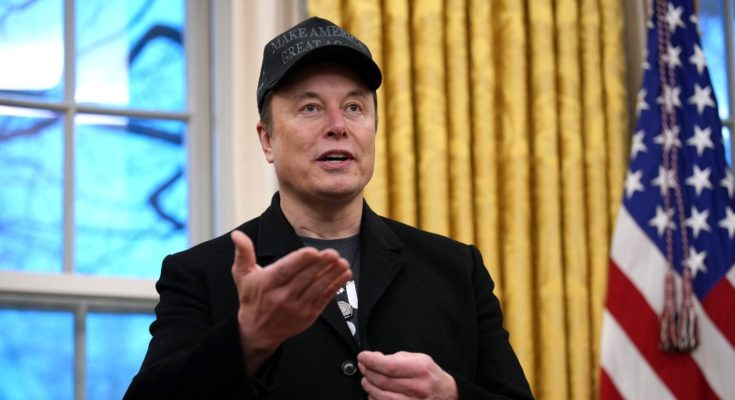Department of Government Efficiency chief Elon Musk and his team have been given access to vital financial information for a slew of additional federal agencies following a court win on Tuesday, as a member of the DOGE squad also prepares to receive data on Internal Revenue Service operations.
“The I.R.S. is preparing to give Gavin Kliger, a young software engineer working with [DOGE], access to sensitive taxpayer information as a senior adviser to the I.R.S.’s acting commissioner. The I.R.S. is still working out the terms of his assignment,” The New York Times reported.
Critics have expressed concerns that such actions would grant Musk and his operation unprecedented oversight. Lily Batchelder, a Treasury Department official during the Biden administration, noted on X that she could not recall political appointees ever having access to the IRS database, the outlet continued.
A major worry is the potential for using this access to target political opponents or leak private citizens’ data. Batchelder warned that such a move could violate federal laws prohibiting executive branch interference in taxpayer audits. Meanwhile, Democratic Senators Ron Wyden of Oregon and Elizabeth Warren of Massachusetts have demanded further details on the extent of access granted, The Times added.
While Democrats and their allies in the legacy media continue to claim — so far without any evidence — that Musk and his DOGE team will be “accessing sensitive taxpayer information” and could leak it, The Times report did note that actually happened recently — to Musk. His 2014-2018 tax returns, along with those of other billionaires the left doesn’t like, were leaked by an IRS official to the outlet ProPublica in 2021.
President Donald Trump, who appointed Musk to his role, remains fully committed to the billionaire Tesla and SpaceX founder’s mission.
“Waste, fraud and abuse have been deeply entrenched in our broken system for far too long,” Harrison Fields, a White House spokesman, said in a statement. “It takes direct access to the system to identify and fix it.”
Meanwhile, U.S. District Judge Tanya Chutkan on Tuesday rejected a request from 14 Democratic state attorneys general to immediately impose broad restrictions on Elon Musk’s Department of Government Efficiency (DOGE).
Led by New Mexico, the coalition of states argues that Musk’s extensive role at DOGE is unconstitutional because he was not confirmed by the Senate. They had sought to block DOGE from accessing seven federal agencies, The Hill reported.
Chutkan denied their request at this stage of the case, stating they had not demonstrated the necessary proof of irreparable harm.
“Plaintiffs legitimately call into question what appears to be the unchecked authority of an unelected individual and an entity that was not created by Congress and over which it has no oversight,” Chutkan wrote in her ruling.
“In these circumstances, it must be indisputable that this court acts within the bounds of its authority,” she continued. “Accordingly, it cannot issue a TRO [temporary restraining order], especially one as wide-ranging as Plaintiffs request, without clear evidence of imminent, irreparable harm to these Plaintiffs. The current record does not meet that standard.”
In a footnote, the judge suggested that the Justice Department may have exaggerated in court filings regarding the extent of DOGE’s influence over personnel issues. “Defense counsel is reminded of their duty to make truthful representations to the court,” Chutkan wrote.
Since Trump’s inauguration, Musk’s Department of Government Efficiency (DOGE) has moved swiftly to place employees within federal agencies, aiming to slash trillions in government spending—a push that has already sparked legal challenges.
The rapid overhaul has placed Chutkan, an Obama appointee, at the center of yet another legal battle involving the president. Chutkan previously presided over the now-dismissed Jan. 6 criminal case against the former president.



